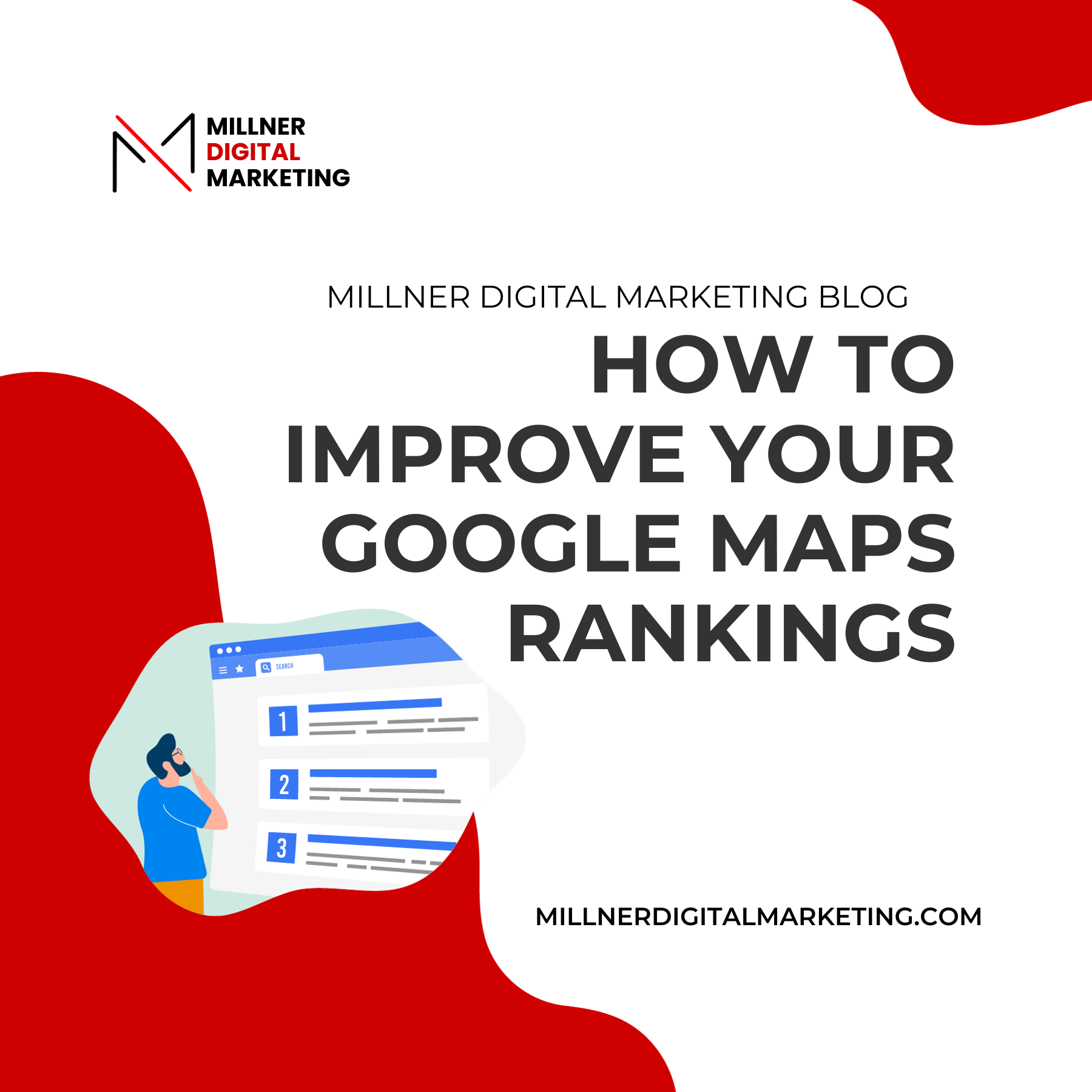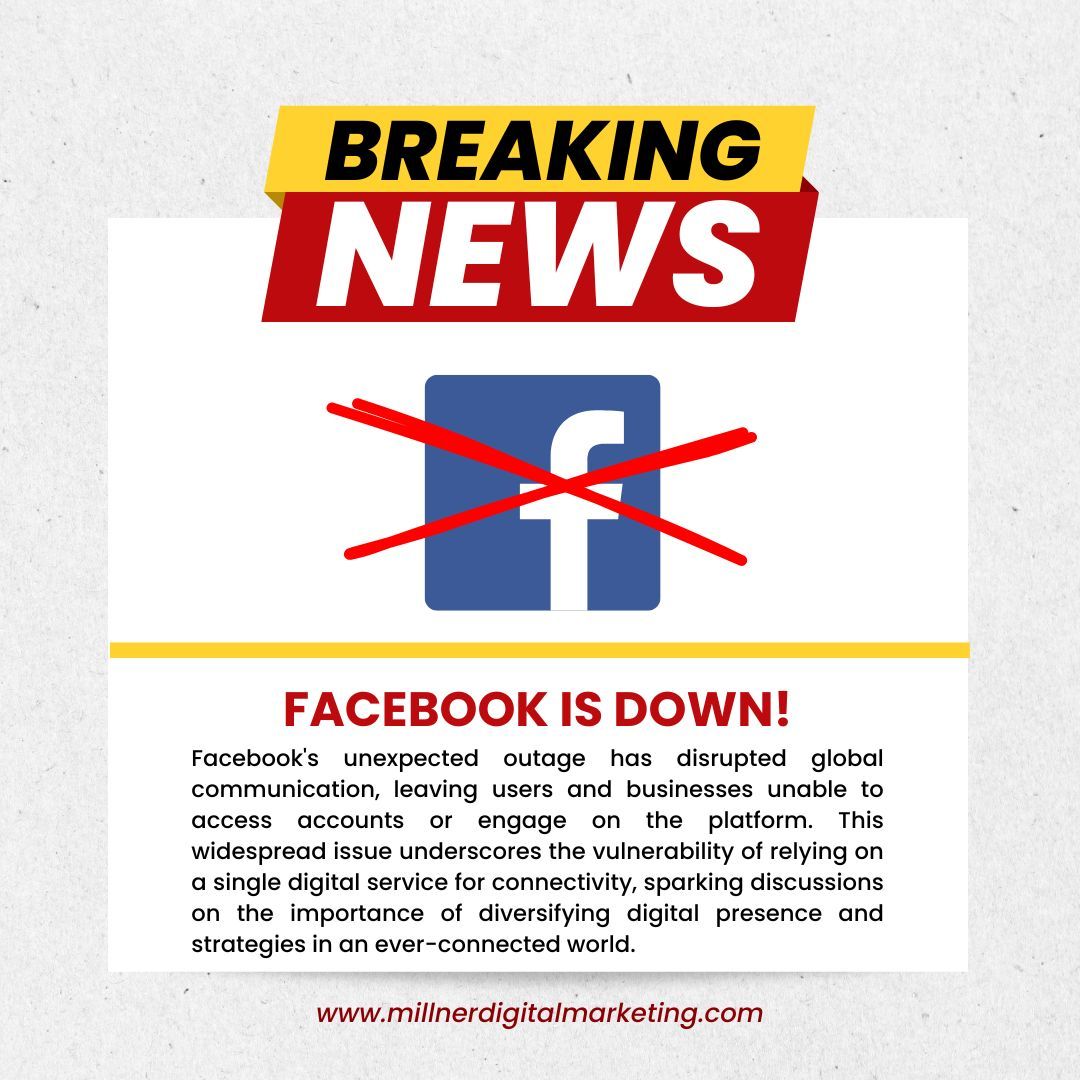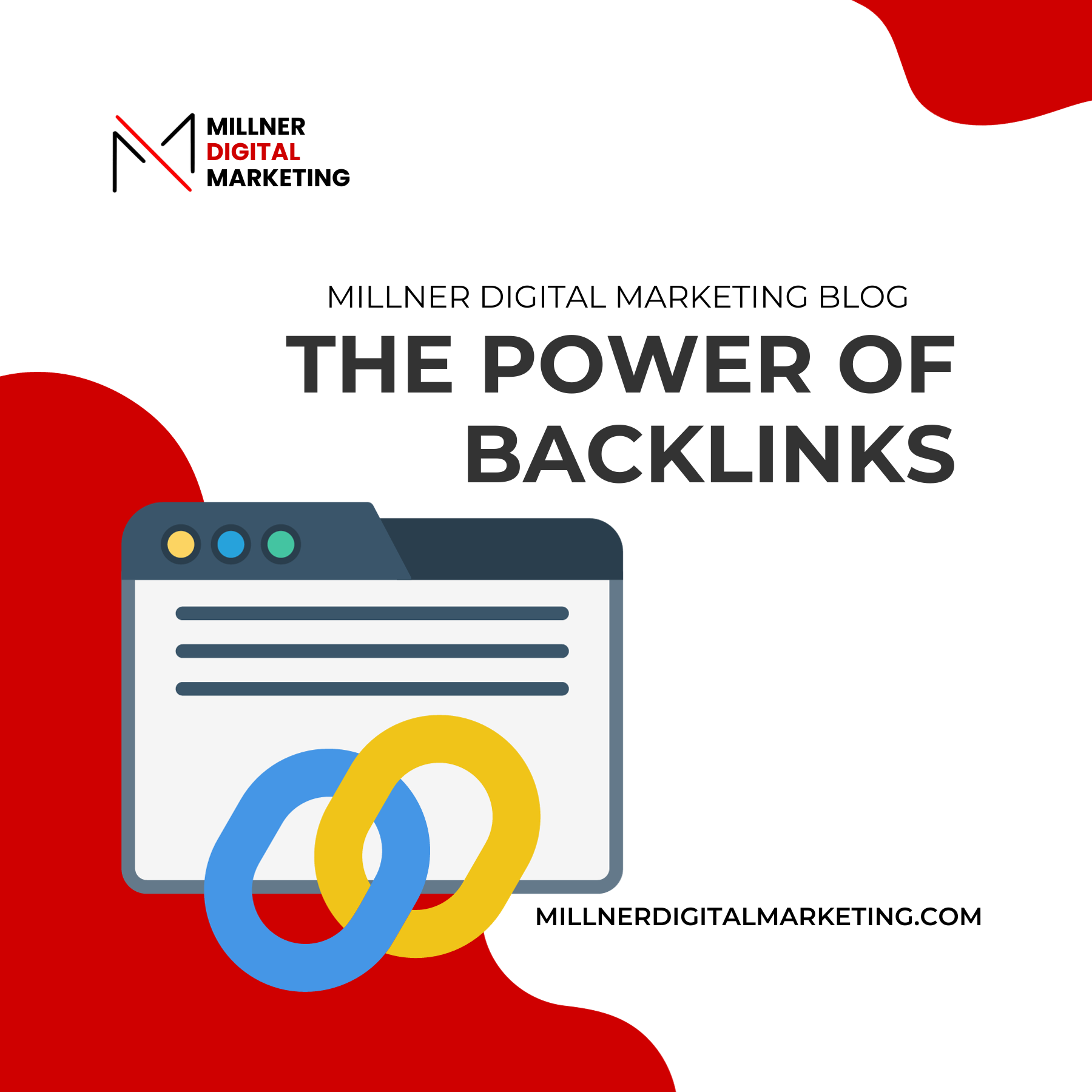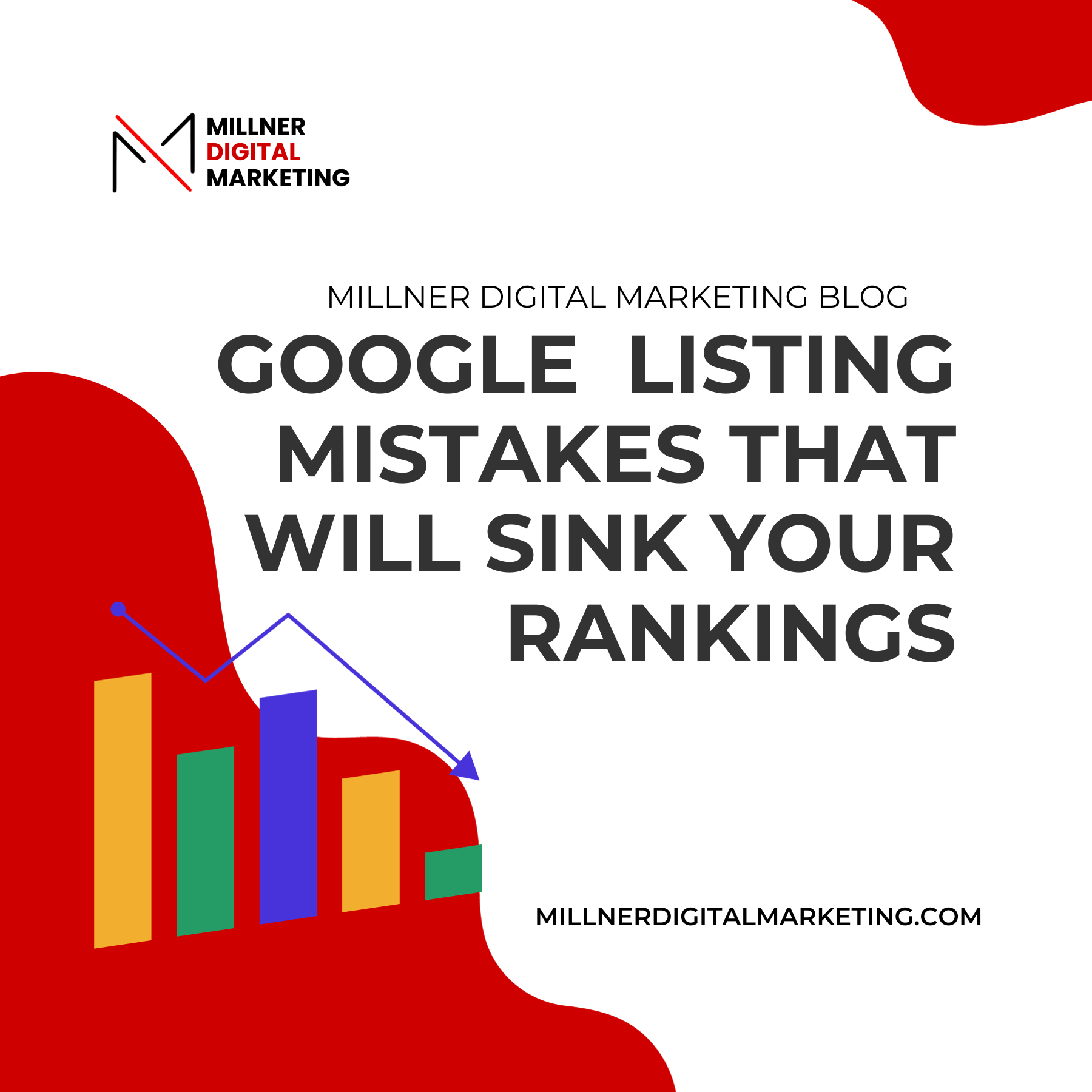What Are the Common SEO Mistakes And How Do You Avoid Them?
Search Engine Optimization (SEO) is widely acknowledged as a critical component of effective digital marketing strategies. It holds immense power to influence your website's ranking in search results, making it crucial to tread carefully. Even the slightest misstep can have detrimental consequences. However, as a business owner, it's natural to have made SEO mistakes in the past. It is important to embrace these experiences as learning opportunities and ensure they don't hinder your future endeavors. In this comprehensive blog post, we will delve into the most common SEO mistakes typically made by business owners. Understanding these pitfalls and implementing preventive measures can safeguard your website's visibility and elevate your business to new heights.

10 Common SEO Mistakes
- Poor Keyword Research
- Overly Stuffing Keywords
- Duplicate Content
- Not Optimizing/Missing Metadata
- Neglecting Mobile Optimization
- Ignoring Analytics
- Not Optimizing For Users
- Slow Site Speed
- Broken Links
- No Regular Updates
Poor Keyword Research
One of the most common and detrimental mistakes many business owners make is paying attention to the importance of conducting extensive keyword research. Keywords, as we know, play a crucial role in online searches for products or services. Failing to conduct proper research unintentionally leads you to target the wrong keywords, resulting in insufficient website traffic and, ultimately, lower conversion rates.
To avoid this costly mistake, it is important to understand your target audience and their specific search intent truly. You can uncover the keywords that resonate most with them by delving into their preferences, needs, and desires. This will empower you to create tailored content that attracts and engages your potential customers.
Thankfully, powerful keyword research tools are available to assist you in this endeavor. Tools such as Google Ads Keyword Planner, Ahrefs, and SEMrush can provide you with valuable insights and data to identify and leverage relevant keywords. By utilizing these tools effectively, you can unlock the potential to drive high-quality traffic to your website, enhancing visibility and ultimately leading to improved business success.
So, take into account the power of keyword research. Take the time to understand your target audience and leverage the tools to identify those golden keywords that will propel your online presence to new heights. Your website traffic, conversion rates, and business success will thank you for it!
Overly Stuffing Keywords
Many website owners believe that incorporating a high volume of keywords into their content is the key to success. However, this couldn't be further from the truth. Overstuffing your website's content with an excessive amount of keywords not only makes for a poor user experience, it can also have severe negative effects on your search engine rankings.
Search engines like Google have sophisticated algorithms that are designed to detect and penalize websites that employ such tactics, considering them spammy or manipulative. These algorithms take into account various factors such as keyword density, relevance, and user engagement metrics to determine the quality and value of a website's content.
Instead of overusing keywords, website owners should focus on producing high-quality, relevant content that provides value to their audience. This includes creating informative articles, engaging blog posts, and helpful resources that address the needs and interests of their target audience.
By delivering valuable content, website owners can establish themselves as authoritative sources in their respective industries. This not only improves their search engine ranking but also builds trust and credibility with their audience. As a result, they are more likely to attract organic traffic, gain repeat visitors, and generate higher conversions.
While keywords do play a role in optimizing website content for search engines, the focus should be on creating valuable and user-friendly content that resonates with the target audience. By prioritizing quality over quantity, website owners can achieve long-term success in terms of search engine rankings and overall user satisfaction.
Duplicate Content
Another common SEO mistake that website owners should be aware of is the use of duplicate content. Duplicate content refers to identical or similar content across multiple website pages or when content is copied from other websites without proper authorization. It is crucial to understand that search engines heavily penalize websites with duplicate content, significantly declining search rankings.
To avoid this detrimental outcome, it is important to take proactive measures to ensure that the content on your website is unique and original. Utilizing plagiarism checkers such as Grammarly, Copyscape, or Quetext can assist in thoroughly verifying the authenticity of your content. By doing so, you can gain confidence that your website offers visitors valuable and original information.
By preventing duplicate content, you can significantly enhance your website's SEO performance and improve its visibility in search engine results. This will ultimately lead to increased organic traffic and a better overall user experience for your website visitors. Remember, investing time and effort into creating unique and high-quality content is a long-term strategy that pays off in terms of improved search rankings and increased online presence.
Not Optimizing/Missing Metadata
Title tags and meta descriptions play a crucial role in SEO by aiding search engines in comprehending the content of your web pages. They serve as concise summaries that provide users with a glimpse into what your page is about. However, it is unfortunate that many business owners overlook the optimization of these elements, which can harm their website's ranking and visibility in search results.
To avoid falling into this trap, it is important to ensure that all of your web pages have accurate and descriptive titles and meta descriptions that incorporate relevant keywords. These tags should accurately reflect the content of each page, enticing users to click through and explore further.
Moreover, it is vital to address any missing metadata promptly. When your pages lack title tags or meta descriptions, search engines may struggle to understand and properly index your content, which can negatively impact your website's performance.
By taking these steps and investing time in optimizing your title tags and meta descriptions, you can enhance your website's visibility, improve click-through rates, and ultimately avoid potential penalties associated with inadequate or missing
metadata. Remember, these small yet significant details can make a big difference in how search engines perceive and rank your website.
Neglecting Mobile Optimization
With over 52% of website traffic originating from mobile devices, it is crucial to prioritize and invest in making your website mobile-friendly. Neglecting mobile optimization can have detrimental effects on your website ranking, as search engines are known to penalize non-mobile-friendly sites. To prevent this from happening, it is imperative to ensure that your website is responsive and capable of adapting to different screen sizes.
Additionally, optimizing the loading speed of your pages is equally important. Slow-loading pages frustrate users and lead to a subpar user experience. This can ultimately result in higher bounce rates and decreased user engagement. By improving the loading speed, you can enhance the overall performance of your website and cater to the growing number of users accessing the web through mobile devices.
Remember, in today's digital landscape, where mobile usage continues to rise, it is essential to pay attention to these key areas. By providing a seamless and enjoyable mobile experience, you can attract and retain more visitors, increasing conversions and success for your online presence.
Ignoring Analytics
Analytics plays a crucial role in search engine optimization (SEO), providing valuable insights into your website's performance. By leveraging analytics, you can better understand how your website is performing and identify specific areas that require improvement. Unfortunately, many business owners overlook the importance of analytics and fail to measure the true success of their websites.
To avoid falling into this trap, it is essential to prioritize tracking key metrics such as your website's ranking, traffic volume, bounce rate, and conversion rate. Tools like Google Analytics offer comprehensive data and detailed insights that empower you to make well-informed decisions regarding your website's performance and optimization strategies.
By diligently monitoring and analyzing these metrics, you can uncover valuable patterns and trends, enabling you to tailor your SEO efforts to maximize your website's visibility and drive meaningful results. So, don't underestimate the power of analytics – embrace it as a fundamental component of your SEO strategy and unlock the full potential of your online presence.
Not Optimizing For Users
Having a website that is not properly optimized for users can have a significant impact on its SEO performance. When visitors encounter a poor user experience, they are more likely to quickly leave and never return, resulting in an increased bounce rate. This bounce rate is a critical factor that search engines consider when determining your website's ranking. Consequently, consistently high bounce rates can have a detrimental effect on your SEO and ultimately hinder the growth of your online presence.
Moreover, the negative consequences of not optimizing your website for users extend beyond bounce rates. One such consequence is the impact on website loading speed. Slow loading times are not only frustrating for users but also negatively affect the overall user experience. Search engines, too, consider website loading speed as a ranking factor. Hence, if your website fails to prioritize user optimization, it can have a direct negative impact on your search ranking, impeding the growth and visibility of your online presence.
Slow Site Speed
Having a slow site speed can have far-reaching consequences for the success of your website. Not only does it lead to frustration among your visitors, but it also significantly impacts your search engine ranking and overall user experience. When someone clicks on your page and it takes an eternity to load, they are more likely to abandon it and never return. As a result, your chances of acquiring new leads, making sales, or building a loyal customer base are greatly diminished.
Moreover, it's important to note that search engines like Google prioritize fast-loading websites, which means that a slow site speed can severely hamper your search engine ranking and make it increasingly difficult for people to discover your site. To overcome these challenges, investing in improving your site speed is imperative. By doing so, you'll not only provide a better user experience but also stimulate an increase in website traffic, ultimately bolstering your online presence and establishing a stronger foothold in the digital landscape.
Broken Links
Regarding search engine optimization (SEO), every single factor is crucial in achieving a higher ranking on search engine results pages (SERPs). One such factor that holds significant weight in the eyes of search engines is the presence of broken links on a website. These broken links not only hinder the usability of a website but also erode its credibility and authority.
Imagine this: when Google's web crawler stumbles upon broken links while indexing a website, it slows down the entire indexing process and sends a clear signal that the website is poorly maintained. This, in turn, can lead to a decline in the website's ranking on SERPs, as search engines tend to favor well-maintained and user-friendly websites.
Regularly monitoring and promptly fixing broken links is paramount to avoid such a predicament. By doing so, you establish your website as a trustworthy and reliable source of information, both for users and search engines alike. This meticulous attention to detail and unwavering commitment to website upkeep will undoubtedly contribute to the long-term success of your SEO efforts.
So, include broken links when analyzing your website for SEO. It's not just about fixing technical issues; it's about creating a seamless and enjoyable user experience while building a solid foundation for your website's SEO strategy.
No Regular Updates
One key element that plays a vital role in the success of any website is regular maintenance and updates. From a search engine optimization (SEO) perspective, neglecting to update your website can significantly negatively impact your search rankings. Search engines are designed to favor websites with fresh and relevant content, and if your site has been updated for a while, it runs the risk of being viewed as outdated and less valuable to users.
Moreover, outdated websites may not be optimized for the latest mobile devices or browsing habits. This can result in a negative impact on both user experience and search ranking algorithms. In today's mobile-centric world, where users are increasingly accessing websites from their smartphones and tablets, having a website not optimized for mobile can be detrimental to your overall online performance.
To stay on top of the game and maintain strong search engine rankings, regular website updates should be a top priority for any business owner or marketer. This includes updating your content and ensuring that your website is optimized for mobile devices and follows the latest best practices in web design and development.
By prioritizing regular website updates and staying abreast of the latest trends and technologies, you can ensure that your online presence remains relevant, engaging, and optimized for success in today's digital landscape.
Conclusion
SEO (Search Engine Optimization) is a complex and ever-changing field that requires a strategic approach. You can significantly improve your website's ranking and achieve better results by avoiding common mistakes. Conduct thorough keyword research to identify the most relevant and high-performing keywords for your target audience.
Additionally, avoiding duplicate content is crucial, as search engines penalize websites with duplicate or copied content. Ensure each page on your website offers unique and valuable information to users.
Optimizing your title tags and meta descriptions is another critical aspect of SEO. These elements provide concise summaries of your web pages and significantly attract clicks from search engine results. Craft compelling and keyword-rich titles and descriptions that accurately represent the content of each page.
In today's mobile-first era, mobile optimization is paramount. With most internet users accessing websites through mobile devices, it's vital to prioritize mobile responsiveness and ensure your website offers a seamless and user-friendly experience across different screen sizes.
Lastly, tracking your website's performance regularly is essential to monitor the effectiveness of your SEO efforts. Utilize analytics tools to measure key metrics such as organic traffic, bounce, and conversion rates. This data will help you identify areas for improvement and make data-driven decisions to optimize your website further.
By diligently following these guidelines, your website can climb higher in search engine rankings, attract more organic traffic, and ultimately generate more leads and sales for your business. Remember that SEO is an ongoing process, and staying up-to-date with the latest trends and best practices is crucial for long-term success.
READY TO WORK WITH
MILLNER DIGITAL MARKETING?

GET IN TOUCH
MORE MARKETING TIPS & TRICKS









